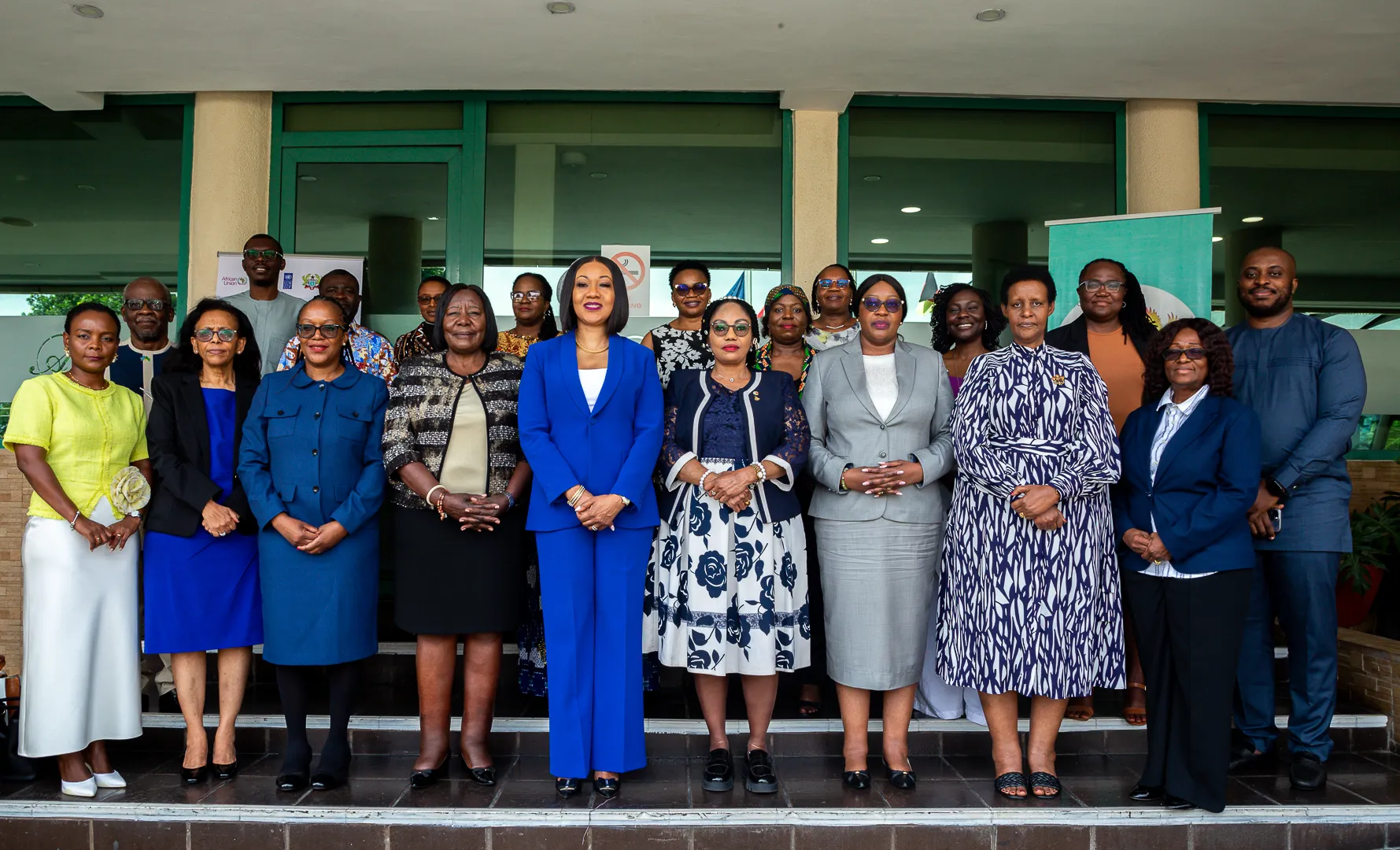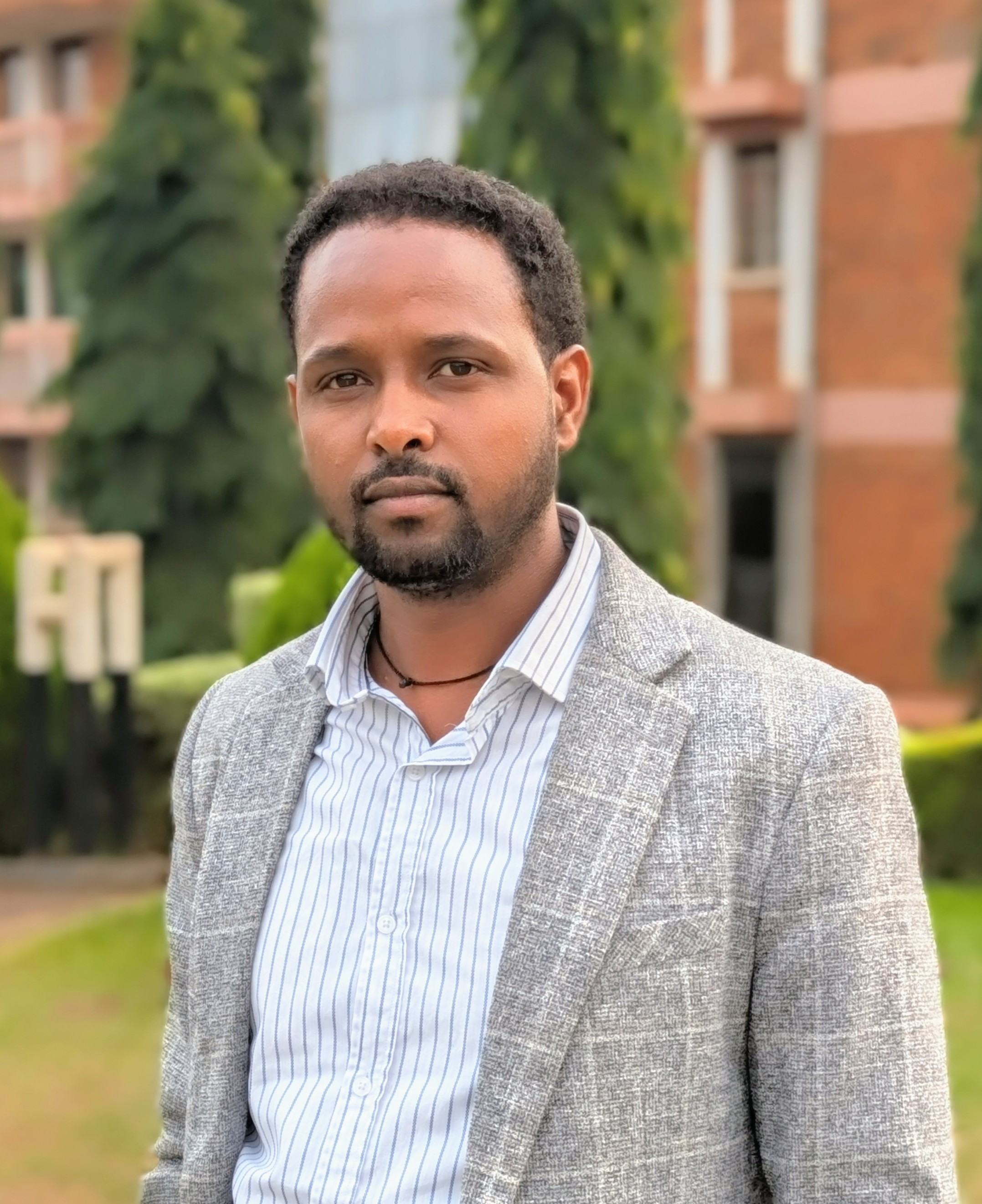Promoting women leadership in electoral management in Africa

The network seeks to promote regional cooperation, peer learning, mentoring and support to women who hold decision-making positions at policy and technical levels within EMBs in Africa This network will contribute broadly to addressing societal values about women in decision-making and to addressing barriers to promote women’s political participation. The network will also contribute to promoting women’s participation in public affairs, build comparative knowledge, and develop the required skills for women in the space of election management.
This strategic meeting was co-organized by International IDEA’s Africa and West Asia Regional Electoral Processes Team with funding from the European Union under the Strengthening Pan-African Capacities Electoral Observation and Assistance Project in collaboration with the United Nations Development Programme, Africa Union and Electoral Commission of Ghana, brought together the nine women EMB chairpersons from Cape Verde, Ethiopia, Ghana, Liberia, Malawi, Namibia, Rwanda, Zambia, and Zimbabwe to assess and enhance women's roles in electoral management across the continent.
The event proved to be a milestone, with discussions focused on key areas:
1) Status of Women’s Participation: Women’s representation in top executive positions in government, particularly in the African Parliament, has seen a one percent increase from 25% in 2021 to 26% in 2024, according to findings of The Women in Political Participation Barometer (WPP). However, their presence in local government across Africa has declined, with East Africa seeing an 11% decrease, despite a 16% increase in women holding top executive positions.[1] Josephine Mwangi highlighted findings from IDEA's gender barometer, revealing that while women are actively participating in electoral processes, only 9 women chair electoral bodies. Despite the slow pace of progress, women chairpersons of African Election Management Bodies (EMBs) remain resolute in their determination to advance meaningful political participation for women in politics. Their institutional strategies are focused on creating a conducive environment for women in the leadership of EMBs on the continent of Africa.
2) Review of Normative Frameworks: International and regional normative frameworks[1] have provided a platform for countries and EMBs to create a playing-level field that allows women to actively engage in politics. To advance women´s participation, some EMBs on the continent have engaged Gender-specific objectives in strategic plans, created a gender focal point system, created a gender equality policy and action plan, and have an affirmative action policy to promote women staff as well as an Anti-sexual harassment policy.
3) Risk and Consideration from a Gender Perspective: (Election Management Leadership and Integrity): Participants discussed the growing complexities of managing elections, including resource constraints and security threats. Women continue to face risk in the context of election management in Africa. Their challenges vary from restricted funding, lack of support from peers and family, limited access to decision-making, media representation and cyberbullying, and the complex and violent process of elections itself. This is rooted in the patriarchal setup of the African context, characterized by power and ego and where women do not control the narrative in politics.
4) Comparative Experiences: Insights were shared on women’s roles in electoral leadership in South America and the Arab regions.
A key highlight was the brainstorming session on creating a continental network for women in electoral management. This proposed network aims to foster regional cooperation and support. Facilitators and speakers, including Olufunto Akinduro from International IDEA, Robert Gerenge from UNDP, and Hilda Modisane from ECF-SADC, share experiences from other existing networks. This contributed to outlining the roadmap for establishing the continental women’s network.
The meeting concluded with closing remarks from Mrs. Jean Mensa, Chairperson of the Electoral Commission of Ghana and President of the AAEA Executive Committee. The meeting set a firm foundation for advancing women’s leadership in the space of election management in Africa.
[1] Normative frameworks:
- 1966: International Covenant on Civil and Political Rights (ICCPR), Art. 25
- 1979: CEDAW Convention, Art. 7, Art. 8
- 1995: Beijing Declaration & Platform for Action, Critical Area of Concern G
- 2012: General Assembly Resolution 66/130 and Sec General report (A/68/184)
- 2015: Sustainable Development Goals (SDGs), 2015
- 2021: CSW65 agreed conclusions (E/CN.6/2021/L.3)
- African Union Agenda 2063
- African Charter on Democracy, Elections and Governance (ACDEG)
- Maputo Protocol
- SADC Regional Framework for Achieving Gender Parity in Political Decision Making




